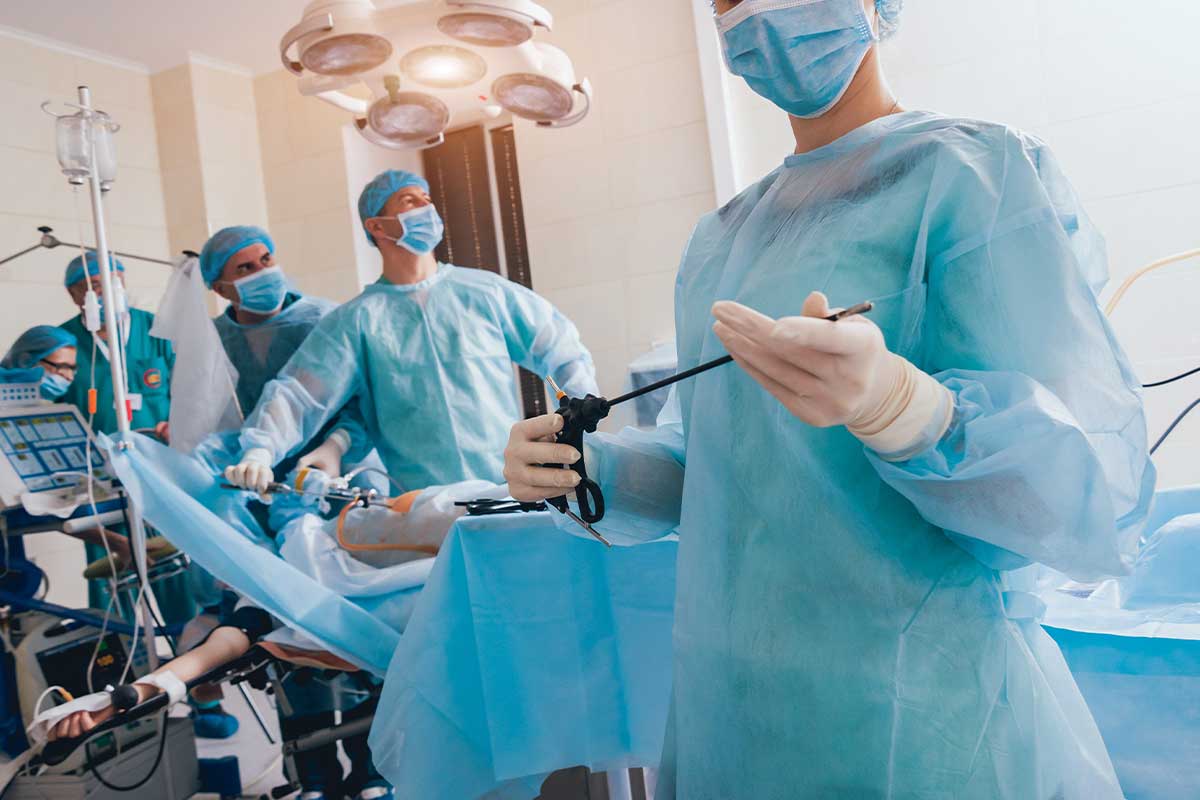
17
May
What to Expect During a Colonoscopy: Sedation and Sleep Explained

Preparing for a colonoscopy can be a daunting experience, especially when it comes to understanding the sedation process. One common question that arises is, “Do they put you to sleep during a colonoscopy?” This query reflects the apprehension many individuals have regarding the level of consciousness and comfort during the procedure. In this comprehensive guide, we aim to shed light on the sedation methods employed during a colonoscopy, providing you with valuable insights and dispelling any misconceptions along the way.
During a colonoscopy, a medical procedure that involves examining the colon for any abnormalities, various sedation options are available to ensure patient comfort. It’s important to understand the differences between conscious sedation, where the patient remains awake but relaxed, and general anesthesia, which induces a state of deep sleep. By delving into these sedation techniques and exploring the pros and cons of each approach, this blog helps you make informed decisions and alleviate any concerns you may have before undergoing a colonoscopy.
Understanding Sedation Options for Colonoscopies
When it comes to colonoscopies, it’s important to be familiar with the available sedation options to ensure a comfortable and stress-free experience. Two commonly used methods for sedation during colonoscopies are conscious sedation and general anesthesia.
Conscious sedation, also known as moderate sedation, involves administering medication that helps you relax while remaining awake and aware during the procedure. This type of sedation allows you to respond to instructions from the medical team and minimizes anxiety and pain. On the other hand, general anesthesia induces a deep sleep, rendering you completely unconscious and unaware of the procedure. General anesthesia is typically reserved for complex cases or patients with a higher risk of discomfort, requiring additional monitoring and interventions.
It’s crucial to discuss your sedation options with your healthcare provider prior to the colonoscopy. They will consider your medical history, current health condition, and personal preferences to determine the most suitable sedation method. The ultimate goal of sedation during a colonoscopy is to ensure your comfort and safety throughout the procedure.
Do They Put You to Sleep? Unraveling the Truth About Colonoscopy Sedation
The purpose of sedation during a colonoscopy is to ensure that you are calm and at ease throughout the procedure. The medications used help to alleviate any potential discomfort or anxiety, allowing you to remain relaxed. While under sedation, you will typically be in a state of conscious sedation, meaning you will be conscious and able to respond to instructions from the medical team. Although you may not have a clear memory of the procedure due to the effects of the sedation, you will not be completely asleep.
Rest assured that the medical professionals overseeing your colonoscopy prioritize your well-being and safety. They will closely monitor your vital signs and adjust the level of sedation as needed to maintain your comfort throughout the examination. The goal is to create an environment where you feel relaxed and undergo the procedure smoothly while ensuring your awareness and cooperation during the colonoscopy.
Sedation vs. Being Fully Awake: Pros and Cons of Each Approach
The choice between sedation and being fully awake during a colonoscopy comes with its own set of advantages and disadvantages. Understanding the pros and cons of each approach can help you make an informed decision based on your preferences and needs.
Sedation offers several benefits during a colonoscopy. It helps you relax, reduces discomfort, and minimizes anxiety associated with the procedure. Sedation also allows the medical team to perform the examination more effectively by ensuring your cooperation and minimizing movement. Additionally, sedation can make the experience feel shorter and provide a blurred memory of the procedure, which may be desirable for those who have concerns about the details of the examination.
However, some individuals prefer to remain fully awake during a colonoscopy. This allows them to actively participate, ask questions, and observe the procedure in real-time. Being awake can provide a sense of control and involvement in the process. It’s important to note that staying fully awake may mean experiencing discomfort or pressure sensations during the colonoscopy, which could be a consideration for individuals with low pain tolerance or anxiety.
Preparing for a Colonoscopy: Sedation Guidelines and Precautions
Proper preparation is key to ensure a successful and comfortable colonoscopy procedure, especially when it comes to sedation. Here are some important guidelines and precautions to consider when getting ready for your colonoscopy.
Firstly, it’s crucial to follow the instructions provided by your healthcare provider regarding dietary restrictions and bowel preparation. These steps are essential to ensure a clear view of the colon during the examination. Additionally, inform your doctor about any medications you’re taking, as certain drugs may need to be adjusted or temporarily discontinued prior to the procedure.
When it comes to sedation, your doctor will determine the most suitable method based on your medical history and individual needs. They will explain the sedation process to you, including any potential risks or side effects associated with the specific medications used. It’s important to disclose any allergies or previous adverse reactions to medications to ensure your safety during the colonoscopy.

